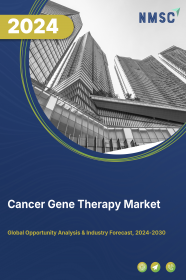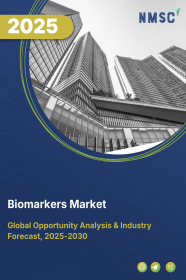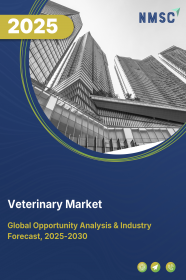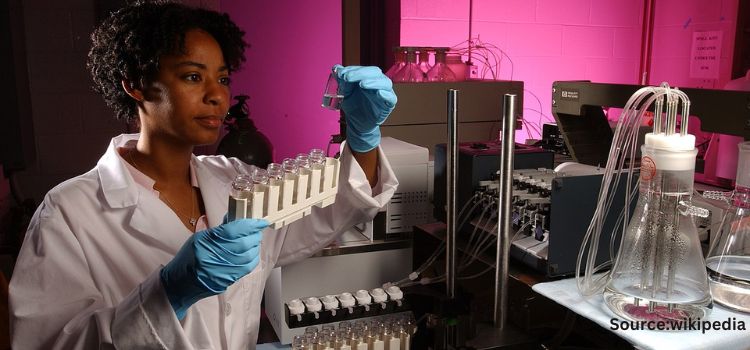
Cancer Gene Therapy Market by Therapy (Gene Induced Immunotherapy, Oncolytic Virotherapy, Gene Transfer) - Global Opportunity Analysis and Industry Forecast, 2020 – 2030
Industry: Healthcare | Publish Date: 05-Dec-2024 | No of Pages: 408 | No. of Tables: 235 | No. of Figures: 205 | Format: PDF | Report Code : HC42
US Tariff Impact on Cancer Gene Therapy Market
Trump Tariffs Are Reshaping Global Business
Market Definition
The Global Cancer Gene Therapy Market size valued to USD 16.50 billion in 2019, is predicted to reach USD 558.24 billion by 2030, with a CAGR of 32.6% from 2020-2030.
Gene therapy is a technique to treat or prevent diseases, by using specific genes to replace the mutated gene causing disease or inactivate the mutated gene not functioning properly, or introducing an entirely new gene into the patient’s body to assist in fighting the disease.
Cancer gene therapy is gaining momentum due to high success rates achieved during pre-clinical and clinical trials. There are several experiments and researches going on to replace the use of conventional drugs and surgeries with gene therapy to treat cancer; as it causes least side effects and offers maximum efficacy.
Market Dynamics and Trends:
According to the World Health Organization, cancer caused nearly 9.6 million deaths in 2018, and it is the second-leading cause of death world-wide. At global level, about 1 in 6 deaths are due to cancer. Owing to this market scenario, the global cancer gene therapy market is growing vehemently.
Furthermore, improving regulatory standards regarding the quality of products utilized in gene therapy, growing investments for R&D activities, growing popularity of DNA vaccines, and ethical acceptance of the gene therapy treatments in treating cancer, are the factors anticipated in propagating growth of the global cancer gene therapy market, throughout the forecast period.
However, factors such as cost-effectiveness of the of gene therapy treatment, unwanted immune responses, and risk factors associated with the treatment, are expected to hamper the growth of cancer gene therapy market during the forecast period.
Moreover, growing geriatric population world-wide, increase In per-capita disposable incomes, advancements in product technologies, as well as untapped market opportunities offered by the emerging economies, are the factors anticipated in creating lucrative opportunities for the growth of cancer gene therapy market, coming future.
Market Segmentations and Scope of the Study:
The cancer gene therapy market share has been analyzed based on therapy, end-user, and geography. Based on therapy, the cancer gene therapy market is classified into gene induced immunotherapy, gene transfer, and oncolytic virotherapy. The gene induced immunotherapy is further sub-segmented into the delivery of cytokines gene and delivery of tumor antigen gene. The gene transfer is further sub-segmented into naked/plasmid vectors, sonoportion, magnetofection, electroporation, and gene gun. The oncolytic virotherapy segment is further sub-segmented into adenovirus, lentivirus, vaccinia virus, herpes simplex virus, alpha virus, retro virus, adeno associated virus, simian virus, and others. Based on application, the cancer gene therapy market is divided into hospitals, diagnostics centers, and research institutes. Geographic breakdown and analysis of each of the previously mentioned segments include regions comprising North America, Europe, Asia-Pacific, and RoW.
Geographical Analysis:
North America region dominated the global cancer gene therapy market in the past, and is expected to maintain its dominance throughout the forecast period, accounting for the highest market share. The growing number of geriatric populations, well-established health-care infrastructures with specialized medical practitioners, advanced technological developments at the product front, presence of major manufactures and key players as well as higher adoption of cancer gene therapy treatment in this region, are the factors expected to boost-up the cancer gene therapy market growth.
Asia Pacific region is expected to demonstrate a substantial growth in the cancer gene therapy market, with considerable CAGR values throughout the forecast period. Increasing consumer awareness about cancer gene therapy, increasing government initiatives in propagating this treatment, improvement in healthcare infrastructures as well as untapped market offered by emerging economies, are further expected to propel the growth of cancer gene therapy market.
Competitive Landscape:
Comprehensive competitive analysis and profiles of the major market players such as Bluebird bio, Inc., Merck, Adaptimmune, GlaxoSmithKline, BioCancell, Shenzhen SiBiono GeneTech, SynerGene Therapeutics, Celgene, Shanghai Sunway Biotech, OncoGenex Pharmaceuticals, and others are provided in the cancer gene therapy market report. An upsurge in R&D activities and advancement in product technologies and new product launches by the key players, is leading the healthcare infrastructure to new heights, thereby creating lucrative opportunities in the global cancer gene therapy market.
For instance, in January 2020, Merck and AstraZeneca, one of the key players of cancer gene therapy market, announced that the U.S. Food and Drug Administration (FDA) has accepted and granted priority review for their regulatory submission of supplemental New Drug Application of LYNPARZA (Olaparib) for the treatment of patients suffering from metastatic castration-resistant prostate cancer as well as deleterious, suspected deleterious germline or somatic homologous recombination repair (HRR) gene mutations, that have progressed a prior treatment with a new hormonal agent. During the clinical trials, LYNPARA met its primary as well as secondary endpoints of radiographic progression-free survival in the overall population of men with HRR-mutated metastatic castration resistant. prostate cancer, by reducing the risk of disease progression or death by 66% and 51% respectively in both the trials.
Furthermore, at the American Society for Gene and Cell Therapy Annual meeting held in May 2020, Adaptimmune Therapeutics Plc., a leader in T-cell therapy to treat cancer and one of the major players of cancer gene therapy market, presented its advances from its Allogeneic Platform demonstrating that SPEAR T (Specific Peptide Enhanced Affinity Receptor) -T-cells engineered from Stem-Cells targeting MAGE-A4+ can kill tumor cells in vitro as effectively as control cells. Adaptimmune plans to build large banks of pluripotent cells for their proprietary differentiation process, to generate functional T-cells expressing Adaptimmune’s engineered receptors. This creates a milestone in building cell banks for clinical use in the cancer gene therapy market.
Key Benefits
-
The cancer gene therapy market report provides quantitative analysis of the current market and estimations through 2020-2030 that assists in identifying the prevailing market opportunities to capitalize on.
-
The study comprises a deep dive analysis of the cancer gene therapy market including the current and future trends for depicting the prevalent investment pockets in the market
-
The report provides detailed information related to key drivers, restraints and opportunities and their impact on the cancer gene therapy market.
-
The report incorporates competitive analysis of the market players along with their market share and market size in the global cancer gene therapy market.
-
The SWOT analysis and Porters Five Forces model in addition to cancer gene therapy market trend analysis is elaborated in the study.
-
Value chain analysis in the cancer gene therapy market study provides a clear picture of the stakeholders’ roles.
Key Market Segments
By Therapy
-
Gene Induced Immunotherapy
-
Adenovirus
-
Lentivirus
-
Retro Virus
-
Adeno Associated Virus
-
Herpes Simplex Virus
-
Alpha Virus
-
Vaccinia Virus
-
Simian Virus
-
Others
-
-
Oncolytic Virotherapy
-
Delivery of Cytokines Gene
-
Delivery of Tumor Antigen Gene
-
Oncolytic Virotherapy
-
-
Gene Transfer
-
Electroporation
-
Sonoportion
-
Magnetofection
-
Gene Gun
-
By Geography
-
North America
-
U.S.
-
Canada
-
Mexico
-
-
Europe
-
UK
-
Germany
-
France
-
Italy
-
Spain
-
Rest of Europe
-
-
Asia-Pacific
-
China
-
India
-
Japan
-
Australia
-
South Korea
-
Taiwan
-
Rest of Asia-Pacific
-
-
RoW
-
Saudi Arabia
-
South Africa
-
Brazil
-
Turkey
-
Remaining Countries
-
Key Players
-
Bluebird bio, Inc.
-
Merck
-
Adaptimmune
-
GlaxoSmithKline
-
BioCancell
-
Shenzhen SiBiono GeneTech
-
SynerGene Therapeutics
-
Celgene
-
Shanghai Sunway Biotech
-
OncoGenex Pharmaceuticals
REPORT SCOPE AND SEGMENTATION:
|
Parameters |
Details |
|
Analysis Period |
2019–2030 |
|
Base Year Considered |
2019 |
|
Forecast Period |
2020–2030 |
|
Market Size Estimation |
Billion (USD) |
|
Market Segmentation |
By Therapy (Gene Induced Immunotherapy, Oncolytic Virotherapy, Gene Transfer) |
|
Geographical Segmentation |
North America (U.S., Canada, Mexico) Europe (UK, Germany, Italy, France, Spain, Rest of Europe), Asia-Pacific (China, Japan, India, Australia, South Korea, Taiwan, Rest of APAC), Rest of the World (Turkey, Saudi Arabia, South Africa, Brazil, Remaining countries) |
|
Companies Profiled |
Bluebird bio, Inc., Merck, Adaptimmune, GlaxoSmithKline, BioCancell, Shenzhen SiBiono GeneTech, SynerGene Therapeutics, Celgene, Shanghai Sunway Biotech, and OncoGenex Pharmaceuticals |

















 Speak to Our Analyst
Speak to Our Analyst




















